10 Things we knew from open-sourced Twitter algorithm
Twitter (now called X Corp) revealed its algorithm to the world as open source on GitHub .
But what does it mean for you?
I spent the evening analyzing it.
Here’s what you need to know:
1. Likes, then retweets, then replies 🔗
Here’s the ranking parameters:
- Each like gets a 30x boost
- Each retweet a 20x
- Each reply only 1x
It’s much more impactful to earn likes and retweets than replies.
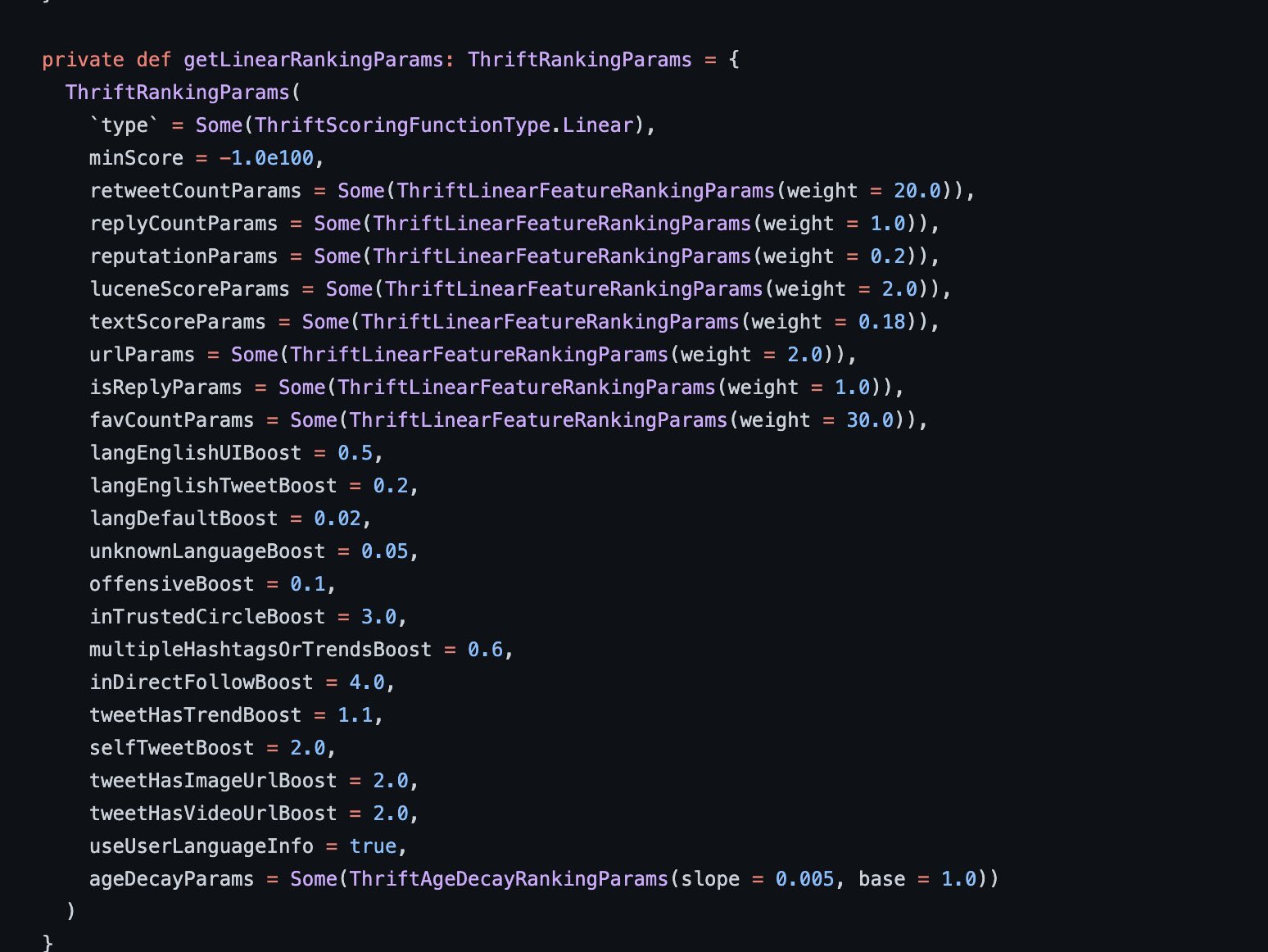
2. Images & videos help 🔗
Both images and videos lead to a nice 2x boost.
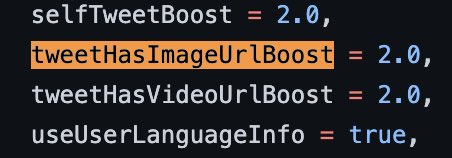
3. Links hurt, unless you have enough engagement 🔗
Generally external links get you marked as spam.
Unless you have enough engagement.
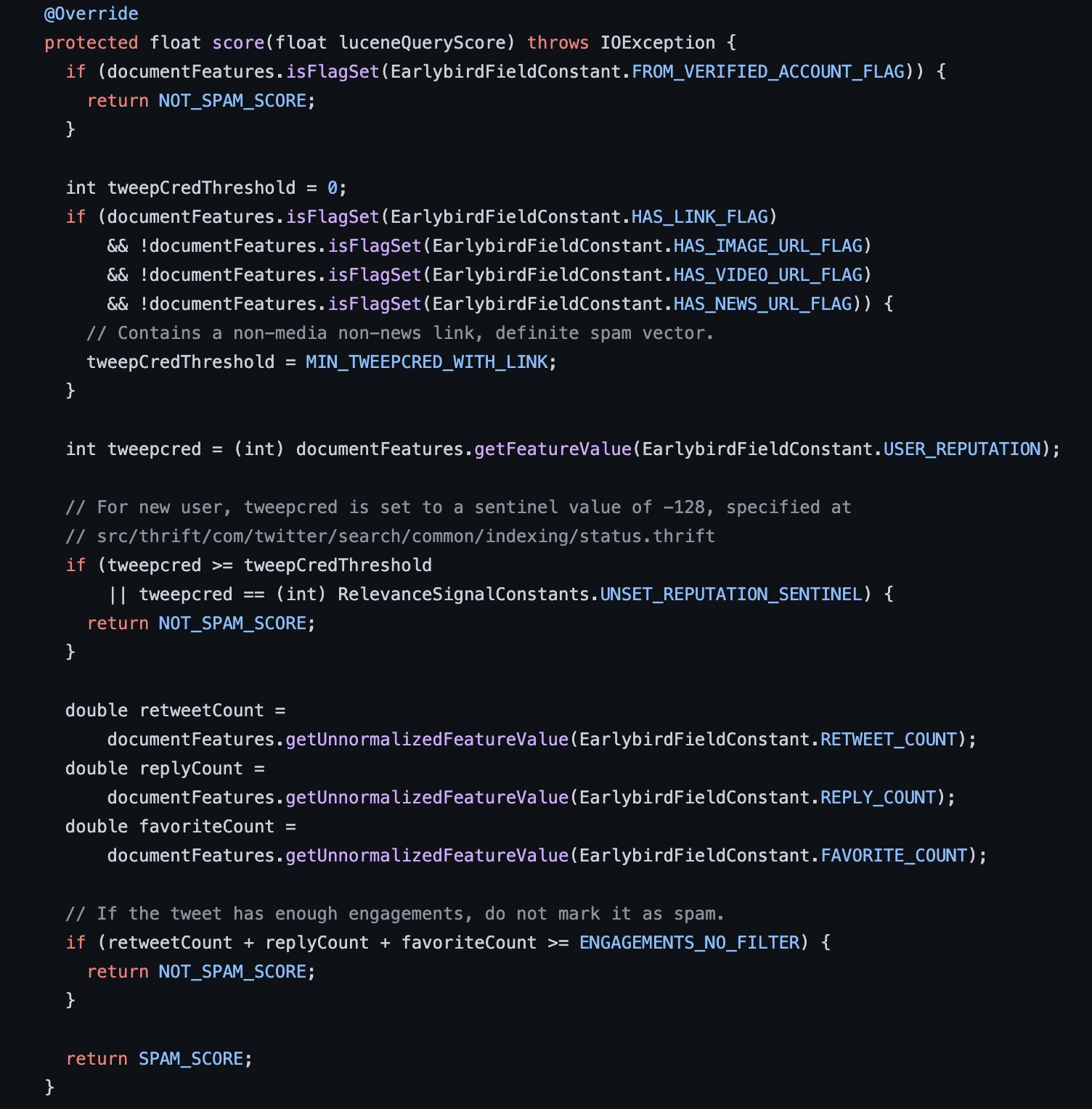
4. Mutes & unfollows hurt 🔗
All of the following hurt your engagement:
- Mutes
- Blocks
- Unfollows
- Spam reports
- Abuse reports
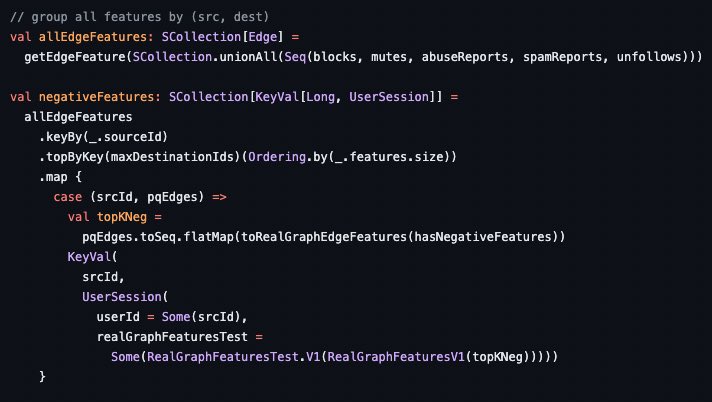
5. Blue extends reach 🔗
Paying the monthly fee gets you a healthy boost.
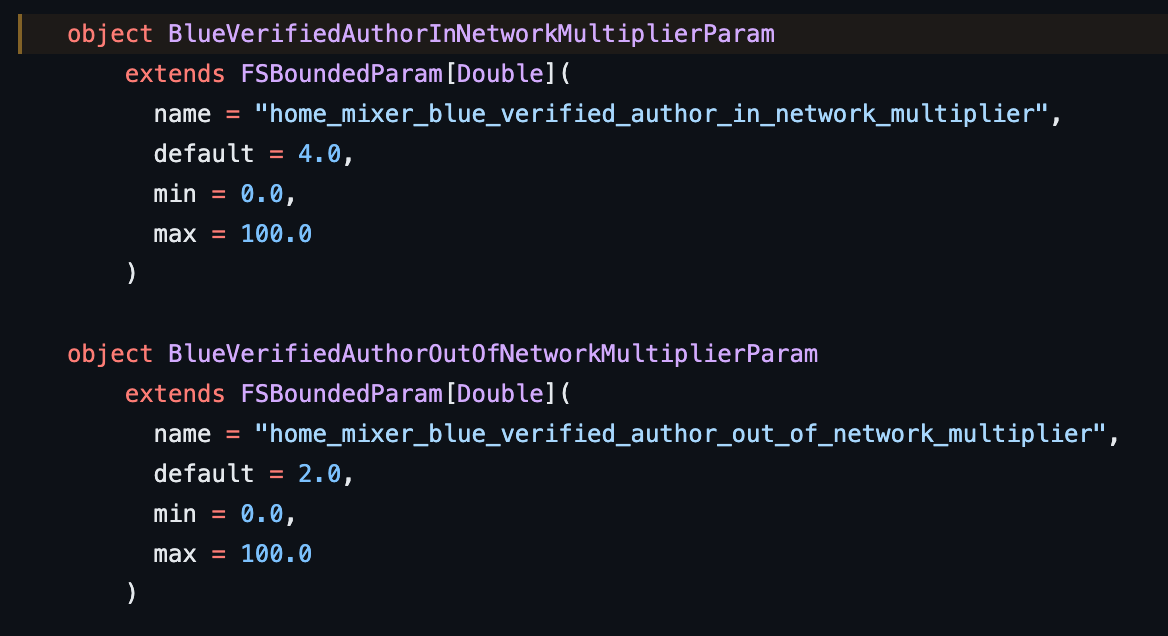
6. Misinformation is highly down-ranked 🔗
Anything that is categorized as misinformation gets the rug pulled out from under it.
Surprisingly, so are posts about Ukraine.
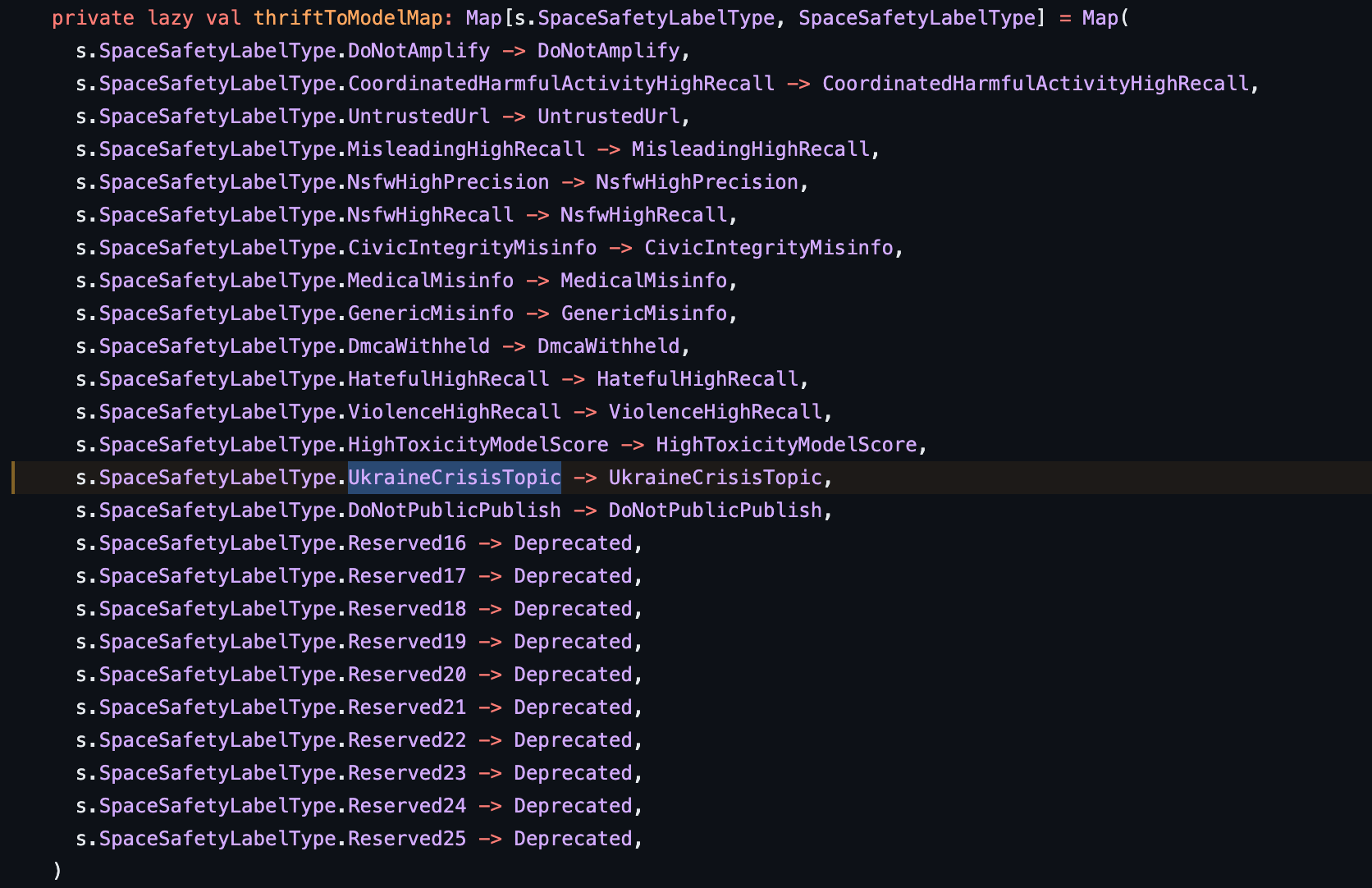
7. You are clustered into a group 🔗
The algorithm puts you into a grouping of similar profiles.
It uses that to extend tweet reach beyond your followers to similar people.
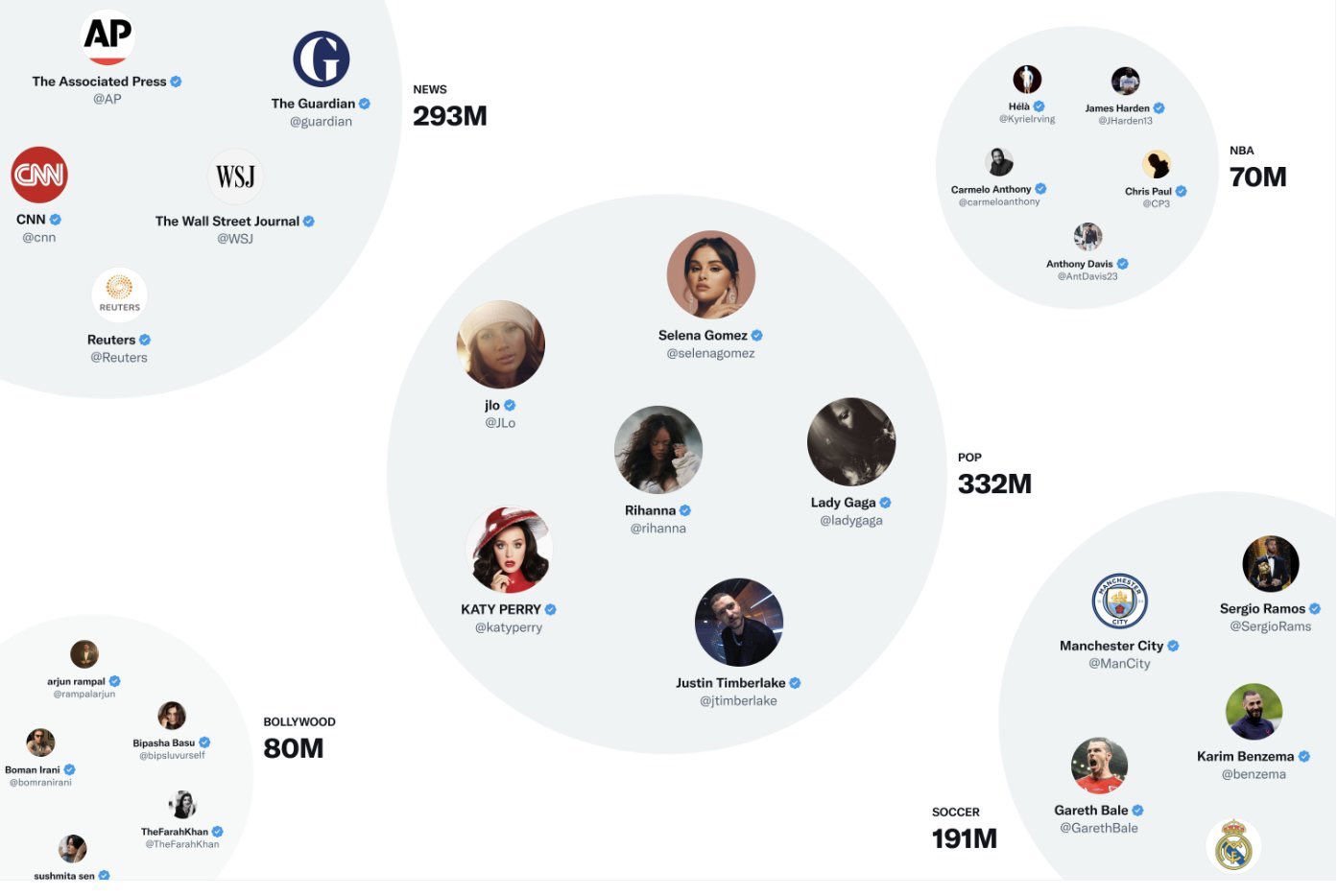
8. Posting outside your cluster hurts 🔗
If you do “out of network” content, it’s not going to do as well.
That’s why hammering home points about your niche works.

9. Making up words or misspelling hurts 🔗
Words that are identified as “unknown language” are given 0.01, which is a huge penalty.
Anything under 1 is bad.
This is really bad.

10. Followers, engagement & user data are the three data points 🔗
If you take away anything, remember this - the models take in 3 inputs:
- Likes, retweets, replies: engagement data
- Mutes, unfollows, spam reports: user data
- Who follows you: the follower graph

I hope you enjoyed reading this post as much as I enjoyed writing it. If you know a person who can benefit from this information, send them a link of this post. If you want to get notified about new posts, follow me on YouTube , Twitter (x) , LinkedIn , and GitHub .